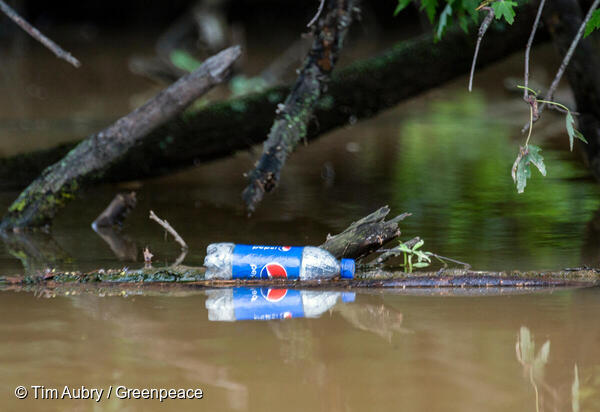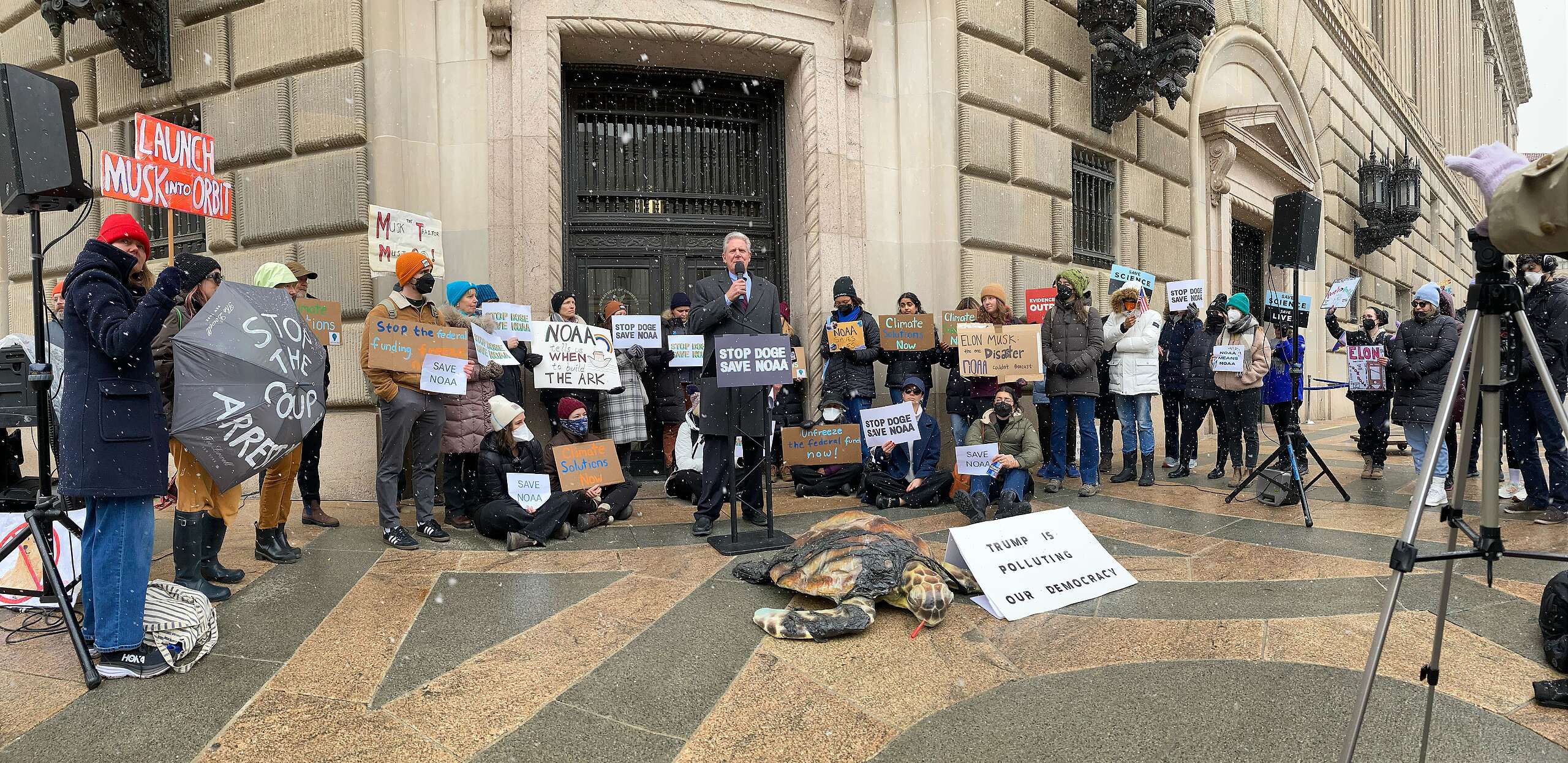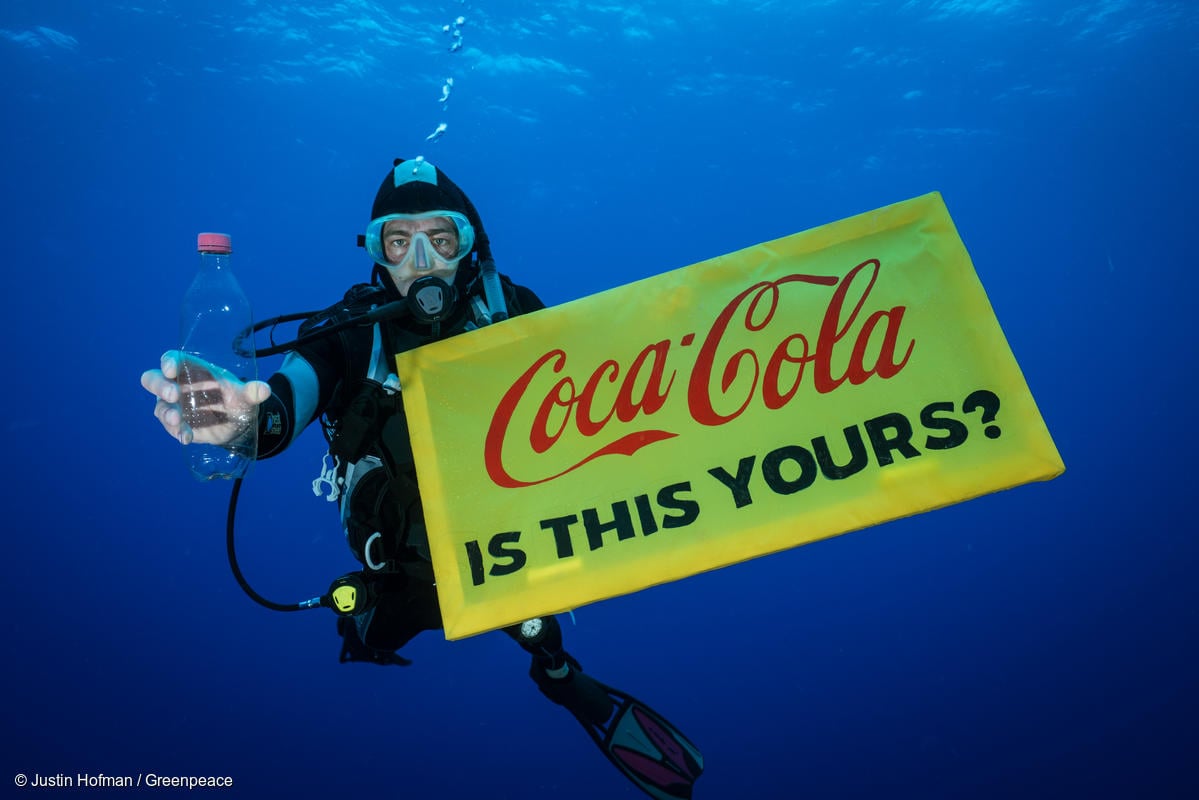Once again, the plastics industry is at it, spewing lies to protect its profits while our health, our communities, and the planet suffer.

Once again, the plastics industry is at it, spewing lies to protect its profits while our health, our communities, and the planet suffer. Industry leaders recently sent a letter to President Biden ahead of the next round of plastics treaty talks, and it’s no surprise that they’re pushing for a Global Plastics Treaty that conveniently sidesteps the full range of plastic crisis issues they have created. Instead, they’re focusing on plastic waste in the environment while doing nothing to address the root cause — runaway plastic production. But here’s the thing – we’re not buying it, and neither should you.
Plastics Industry Math
The American Chemistry Council (ACC) and the companies it represents, such as Dow, Exxon, and Dupont, have made it clear that they will disregard people’s well-being and prioritize profit-making above all else. They claim that plastics, 99% of which are made from fossil fuels, are somehow reducing carbon emissions. But we know this blatant lie is all smoke and mirrors to support their greenwashing and gaslight the public.
The truth is that if we don’t act fast, plastic production could triple by 2050, churning out emissions equivalent to almost 300 coal-fired power plants by 2030. And while the planet’s heating up, the Intergovernmental Panel on Climate Change (IPCC) has warned that we must cut emissions by almost 50% by 2030 to limit warming to 1.5℃. To ensure we do not exceed this planetary boundary, the Global Plastics Treaty must cut total plastic production by at least 75% by 2040.
But there’s more to this crisis that we need to keep in mind. The plastic industry’s expansion spree, fueled by cheap fracking gas, isn’t just harming the environment by throwing a wrench in our efforts to tackle carbon emissions. It’s also messing with our health and harming our communities.
Make it, Make Sense
The plastics industry constantly touts its benefit to society. But we ask, at what costs? Trillions of pieces of single-use plastics are produced each year, used for a moment, and are then burned, discarded, or left to flood the oceans. Our bodies pay the price with a laundry list of health issues, from cancer to heart disease, nervous system disorders, and hormone disruption. Our communities also pay a toll with extreme weather events such as heatwaves, floods, warming oceans, and stronger and more powerful hurricanes on the rise. And the future of the next generation is at stake, with microplastics invading the human placenta and breast milk and children exposed to dangerous chemicals in plastics while simply trying to play with toys.
And these impacts aren’t spread evenly. Marginalized communities, infants, and children bear the brunt, as plastic pollution and the chemicals it releases pose significant health risks, contribute to developmental issues and respiratory problems, and exacerbate existing health disparities. It’s crystal clear—we need change, and we need it now.
Time for Change
So, now that we know what doesn’t work and fact from fiction, it’s time to roll up our sleeves and work on real solutions that can make a difference, such as reducing plastic production and embracing localized refill and reuse systems.
Greenpeace USA and 22 other organizations have requested a meeting with President Biden before the next round of Plastics Treaty negotiations to discuss the interests of people most impacted by the ACC’s members and their toxic pollution. This is a moment of truth for President Biden: Whose side is he on? Who’s he representing in the White House? It’s time to put people and the planet first.



